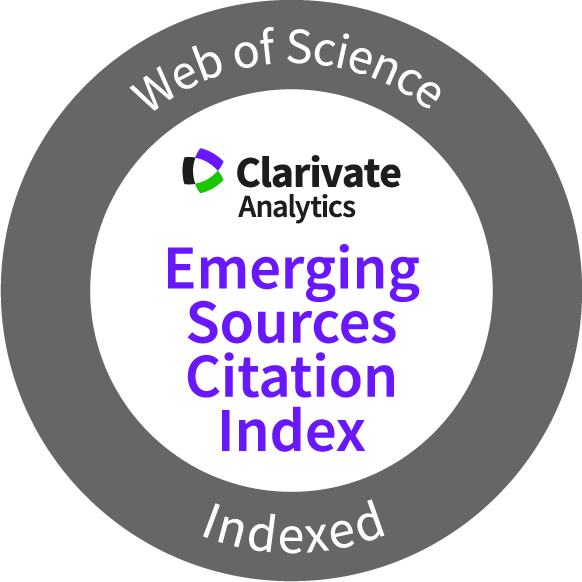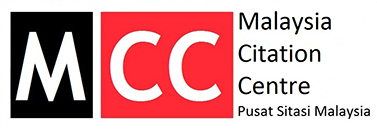Identification and Prevention of Microbial Contaminants in Musa paradisiaca Tissue Culture
Keywords:
antibiotics, antifungal, contamination, Musa paradisiacaAbstract
Banana (Musa spp.) is an economically vital fruit crop in Malaysia and therefore, micropropagation was applied to meet the market demand for disease-free seedlings. However, microbial contamination is a significant obstacle in micropropagation techniques. In this research, the microorganisms that were present in the banana culture were characterized and the efficacy of antimicrobial and antifungal agents to inhibit contaminants was evaluated. Three bacterial and two fungal isolates were isolated from the contaminated culture. Klebsiella pneumoniae, Klebsiella quasipneumoniae, and Klebsiella variicola were identified by molecular identification based on the 16S rDNA sequence. The gram-staining method confirmed all three bacteria were gram-negative. Oxidase and catalase tests showed the presence of cytochrome oxidase system and catalase enzyme in all bacteria. The bacteria can also hydrolyze starch, ferment sugars, and reduce sulfur from the amylase test. Phenotypic identification of fungi revealed the presence of conidia and hyphae, indicating the presence of Colletotrichum spp. and Aspergillus spp. In fungi characterization, Colletotrichum gloeosporioides and Aspergillus flavus were detected. Chloramphenicol was identified as an effective antibacterial agent from the disc diffusion method. Fluconazole was a potent antifungal agent by screening the sterilizing agents. The findings may potentially lead the way for the implementation of reducing the contamination rate in banana micropropagation.
Downloads
Metrics
References
Abd. Shukor, A.R., Jamaluddin S.H., Nik Masdek, N.H., Zabedah, M. & Abdullah, H. 2000. Malaysia banana industry- prospects and challengers. In: Proceedings of the International Workshop on the Banana Fusarium Wilt Disease. University of Philippines Publisher, Laguna, Philippines. pp. 32-38.
Acsa, I., Lilly Caroline, B., Philip Njeru, N. & Lucy Wanjiru, N. 2021. Preliminary study on disinfectant susceptibility/resistance profiles of bacteria isolated from slaughtered village free-range chickens in Nairobi, Kenya. International Journal of Microbiology. 2021:1-7. DOI: https://doi.org/10.1155/2021/8877675
Adeniyi, A.G., Ighalo, J.O. & Onifade, D.V. 2019. Production of biochar from elephant grass (Pernisetum purpureum) using an updraft biomass gasifier with retort heating. Biofuels, 12(10):1283-1290. DOI: https://doi.org/10.1080/17597269.2019.1613751
Aduramigba-Modupe, A., Ekunsanmi, T.J. & Ojurongbe, T.A. 2017. Identification and elimination of bacterial contaminants from yam tissue cultures. Nigerian Journal of Ecology, 16(1): 75–85.
Agbadje, E.T., Agbidinoukoun, A., Zandjanakou-Tachin, M., Cacaï, G.T. & Ahanhanzo, C. 2021. Mass Production of bananas and plantains (Musa spp.) plantlets through in vitro tissue culture partway: A review. European Journal of Biology and Biotechnology, 2(4): 1-8. DOI: https://doi.org/10.24018/ejbio.2021.2.4.229
Alam, M.S., Nahar, S., Chowdhury, M.E.K., Hasan, M.F., Islam, M.A. & Sikdar, B. 2019. Biochemical characterization of bacteria responsible for bacterial black pit disease of lime (Citrus aurantifolia) and their control system. European Journal of Biotechnology and Bioscience, 7(2): 16-22.
Alam, M.W., Malik, A., Rehman, A., Hameed, A., Tahir, U., Sarwar, M., & Shafeeq, T. 2021. First record of Colletotrichum gloeosporioides causing anthracnose of banana in Pakistan. Plant Disease, 105(7):2013. DOI: https://doi.org/10.1094/PDIS-01-21-0215-PDN
Ali, F., Akhtar, N., Shafique, S. & Shafique, S. 2021. Isolation and identification of Aspergilli causing banana fruit rot. Open Journal of Chemistry, 4(1): 8-18. DOI: https://doi.org/10.30538/psrp-ojc2021.0019
Altan, F., Bürün, B. & Sahin, N. 2010. Fungal contaminants observed during micropropagation of Lilium candidum L. and the effect of chemotherapeutic substances applied after sterilization. African Journal of Biotechnology, 9(7): 991-995. DOI: https://doi.org/10.5897/AJB08.090
Anwar, A., Siddiqui, R., Hussain, M.A., Ahmed, D., Shah, M.R. & Khan, N.A. 2018. Silver nanoparticle conjugation affects anti-acanthamoebic activities of amphotericin B, nystatin, and fluconazole. Parasitology research, 117(1): 265-271. DOI: https://doi.org/10.1007/s00436-017-5701-x
Arsogah, S., Rathamanalan, S., Harni, S., Sam, K.K., Vivian, T., Alamudin, N.A., Geng, B.A., Kumaran, J.V. & Appalasamy, S. 2018. FSS-novel technique for in vitro propagation of Araceae and Zingiberaceae in Lojing Highlands, Kelantan. IOP Conference Series: Earth and Environmental Science, 549(1): 012036.
Aung, T.M. & Oo, P.P. 2020. Isolation and characterization of Rhizobium from root nodules of Arachis hypogaea L. (Groundnut). Journal of The Myanmar Academy of Arts and Science, 18: 197-210.
Bhuiyan, F., Campos, N.A., Swennen, R. & Carpentier, S. 2020. Characterizing fruit ripening in plantain and Cavendish bananas: A proteomics approach. Journal of Proteomics, 214: 103632. DOI: https://doi.org/10.1016/j.jprot.2019.103632
Bohra, P., Waman, A.A., Sathyanarayana, B.N., Umesha, K., Anu, S.R., Swetha, H.G. & Gourish, R.K. 2014. Aseptic culture establishment using antibiotics with reference to their efficiency and phytotoxicity in difficult-to-establish native Ney Poovan banana (Musa, AB). Proceedings of the National Academy of Sciences, India Section B: Biological Sciences, 84(2): 257-263. DOI: https://doi.org/10.1007/s40011-013-0220-8
Jabatan Pertanian. 2021. Statistik Tanaman (Sub-Sektor Tanaman Makanan). Jabatan Pertanian Semenanjung Malaysia, Malaysia. 107 pp.
Brown, K.B., Hyde, K.D. & Guest, D.J. 1998. Preliminary studies on endophytic fungal communities of Musa acuminata species complex in Hong Kong and Australia. Fungal Diversity, 1: 27–51.
Chen, L.R., Hsiung, T.C., Lin, K.H., Huang, T.B., Huang, M.Y. & Wakana, A. 2017. Supplementary effect of hydrogen peroxide as a pre–disinfectant for sterilizing rhizome bud explants of Zantedeschia aethiopica L. with chlorine dioxide. Journal of the Faculty of Agriculture, Kyushu University, 62(1): 81-86. DOI: https://doi.org/10.5109/1799306
Dangariya, M., Khandhar, D., Monpara, J., Chudasama, K. & Thaker, V. 2020. Detection and identification of microbial contaminants from plant tissue culture. Tropical Plant Research, 7(2): 388-395. DOI: https://doi.org/10.22271/tpr.2020.v7.i2.045
De Langhe, E., Vrydaghs, L., De Maret, P., Perrier, X. & Denham, T. 2009. Why bananas matter: An introduction to the history of banana domestication. Ethnobotany Research and Applications, 7: 165-177. DOI: https://doi.org/10.17348/era.7.0.165-177
De Nardo, P., Giancola, M.L., Noto, S., Gentilotti, E., Ghirga, P., Tommasi, C. & Corpolongo, A. 2013. Left thigh phlegmon caused by Nocardia farcinica identified by 16S rRNA sequencing in a patient with leprosy: A case report. BMC Infectious Diseases, 13(1): 1-5. DOI: https://doi.org/10.1186/1471-2334-13-162
De Silva, D.D., Crous, P.W., Ades, P.K., Hyde, K.D. & Taylor, P.W. 2017. Life styles of Colletotrichum species and implications for plant biosecurity. Fungal Biology Reviews, 31(3): 155-168. DOI: https://doi.org/10.1016/j.fbr.2017.05.001
Eunice, M. K., Anne, W. M., Johnstone, O. N., & Cecilia, M. M. 2019. Screening of fungal contaminants in banana tissue cultures in Jkuat, Kenya. African Journal of Microbiology Research, 13(29), 675-688.
Fang, J.Y. & Hsu, Y.R. 2012. Molecular identification and antibiotic control of endophytic bacterial contaminants from micropropagated Aglaonema cultures. Plant Cell, Tissue and Organ Culture, 110(1): 53-62. DOI: https://doi.org/10.1007/s11240-012-0129-6
Getnet, G. 2017. Review on in vitro propagation of sugarcane to advance the value of tissue culture. Agricultural Research and Technology, 5(4): 555670. DOI: https://doi.org/10.19080/ARTOAJ.2017.05.555670
Hamill, S. & Rames, E. 2018. An effective indexing method for banana tissue culture provides long-term freedom from bacterial contamination. Acta Horticulturae, 1205: 741-748. DOI: https://doi.org/10.17660/ActaHortic.2018.1205.92
Hodkinson, T.R. & Murphy, B. 2019. Endophytes for a growing world. In: Endophytes for A Growing World T. Hodkinson, F. Doohan, M. Saunders (Eds.). Cambridge University Pres, Cambridge.pp. 3-22. DOI: https://doi.org/10.1017/9781108607667.002
Islam, M.S., Sultana, R., Hasan, M.A., Alam, M.S., Sikdar, B., Kamaruzzaman, M. & Islam, M.A. 2020a. Characterization and biocontrol measures of Pseudomonas syringae pv. syringae associated with citrus blast disease. Vegetos, 33(3): 555-569. DOI: https://doi.org/10.1007/s42535-020-00138-1
Islam, R., Hossain, M.N., Alam, M.K., Uddin, M.E., Rony, M.H., Imran, M.A.S. & Alam, M.F. 2020b. Antibacterial activity of lactic acid bacteria and extraction of bacteriocin protein. Advances in Bioscience and Biotechnology, 11(2): 49-59. DOI: https://doi.org/10.4236/abb.2020.112004
Jabatan Pertanian. 2020. Statistik Tanaman Buah-Buahan, Jabatan Pertanian Semenanjung Malaysia, Malaysia. pp 180.
Kano, K., Shirai, O., Kitazumi, Y., Sakai, K. & Xia, H.Q. 2021. Enzymatic Bioelectrocatalysis. Springer, Singapore. 23–55 pp. DOI: https://doi.org/10.1007/978-981-15-8960-7_2
Kapadia, C. & Patel, N. 2021. Sequential sterilization of banana (Musa Spp.) sucker tip reducing microbial contamination with highest establishment percentage. Bangladesh Journal of Botany, 50(4): 1151-1158. DOI: https://doi.org/10.3329/bjb.v50i4.57083
Khandaker, M.M., Nurnaeimah, N., Mat, N., Suryati Mohd, K., Badaluddin, N.A., Yusoff, N. & Sajili, M.H. 2020. The effects of hydrogen peroxide on plant growth, mineral accumulation, as well as biological and chemical properties of Ficus deltoidea. Agronomy, 10(4): 599. DOI: https://doi.org/10.3390/agronomy10040599
Khasabulli, B.D., Musyimi, D.M., Miruka, D.M., Opande, G.T. & Jeruto, P. 2017. Isolation and characterisation of Ralstonia solanacearum strains of tomato wilt disease from Maseno, Kenya. Journal of Asian Scientific Research, 7(9): 404-420. DOI: https://doi.org/10.18488/journal.2.2017.79.404.420
Kim, D.H., Gopal, J. & Sivanesan, I. 2017. Nanomaterials in plant tissue culture: The disclosed and undisclosed. RSC Advances, 7(58): 36492-36505. DOI: https://doi.org/10.1039/C7RA07025J
Kones, C., Mwajita, M., Kariuki, L., Kiirika, L. & Kavoo, A. 2020. Isolation and characterization of rhizospheric microorganisms from bacterial wilt endemic areas in Kenya. African Journal of Microbiology Research, 14(7): 349-360.
Liang, C., Wu, R., Han, Y., Wan, T. & Cai, Y. 2019. Optimizing suitable antibiotics for bacterium control in micropropagation of cherry rootstock using a modified leaf disk diffusion method and E test. Plants, 8(3): 66. DOI: https://doi.org/10.3390/plants8030066
Liu, T.H.A., Hsu, N.W. & Wu, R.Y. 2005. Control of leaf-tip necrosis of micropropagated ornamental statice by elimination of endophytic bacteria. In Vitro Cellular & Developmental Biology-Plant, 41(4): 546-549. DOI: https://doi.org/10.1079/IVP2005673
Liu, Y., Zhu, A., Tan, H., Cao, L. & Zhang, R. 2019. Engineering banana endosphere microbiome to improve Fusarium wilt resistance in banana. Microbiome, 7(1): 1-15. DOI: https://doi.org/10.1186/s40168-019-0690-x
Long, S.W., Linson, S.E., Ojeda Saavedra, M., Cantu, C., Davis, J.J., Brettin, T., & Olsen, R.J. 2017. Whole-genome sequencing of human clinical Klebsiella pneumoniae isolates reveals misidentification and misunderstandings of Klebsiella pneumoniae, Klebsiella variicola, and Klebsiella quasipneumoniae. Msphere, 2(4):e00290-17. DOI: https://doi.org/10.1128/mSphereDirect.00290-17
Mahmoud, S.N. & Al-Ani, N.K. 2016. Effect of different sterilization methods on contamination and viability of nodal segments of Cestrum nocturnum L. International Journal of Research Studies in Biosciences, 4(1): 4-9. DOI: https://doi.org/10.20431/2349-0365.0401002
Maskey, C. 2018. Extraction of amylase from Bacillus subtilis isolated from soil of Dharan, Sunsari (Bachelor Degree). Central Campus of Technology, Nepal.
McEvoy, B. & Rowan, N.J. 2019. Terminal sterilization of medical devices using vaporized hydrogen peroxide: A review of current methods and emerging opportunities. Journal of Applied Microbiology, 127(5): 1403-1420. DOI: https://doi.org/10.1111/jam.14412
Mizra, M.S., Ahmad, W., Latif, F., Haurat, J., Bally, R., Normand, P. & Malik, K.A. 2001. Isolation, partial characterization, and the effect of plant growth-promoting bacteria (PGPB) on micropropagated sugarcane in vitro. Plant and Soil. 237:47–54. DOI: https://doi.org/10.1023/A:1013388619231
Msogoya, T.J., Kanyagha, H., Mutigitu, J., Kulebelwa, M., & Mamiro, D. 2012. Identification and management of microbial contaminants of banana in vitro cultures. Journal of Applied Biosciences, 55: 3987-3994.
Murashige, T. & Skoog, F. 1962. A revised medium for rapid growth and bioassays with tobacco tissue culture. Physiology Plant, 15: 473–497 DOI: https://doi.org/10.1111/j.1399-3054.1962.tb08052.x
Nsofor, G.C. 2021. Conventional methods of controlling microbial contaminants in meristematic tissue cultures: A review. Nigeria Agricultural Journal, 52(2): 181-186.
Obuekwe, C.O. & Osagie, I.J. 1989. Morphological changes in infected wilt resistant and wilt-susceptible oil palm progenies and hydrolytic enzyme activities associated with Fursarium oxysporum f. sp. elaeidis pathogens. Oléagineux, 44(11): 8-9.
Omemu, A.M., Okafor, U.I., Obadina, A.O., Bankole, M.O. & Adeyeye, S.A.O. 2018. Microbiological assessment of maize ogi cofermented with pigeon pea. Food Science & Nutrition, 6(5): 1238-1253. DOI: https://doi.org/10.1002/fsn3.651
Orlikowska, T., Nowak, K. & Reed, B. 2017. Bacteria in the plant tissue culture environment. Plant Cell, Tissue and Organ Culture, 128(3): 487-508. DOI: https://doi.org/10.1007/s11240-016-1144-9
Prastujati, A.U., Setiadevi, S., Hilmi, M. & Khusna, A. 2019. Isolation and identification of Acetobacter sp. from pineapple (Ananas comosus L.) as nata starter. Journal of World’s Poultry Research, 9(6): 260–264. DOI: https://doi.org/10.36380/scil.2019.ojafr36
Ray, S.S. & Ali, N. 2018. Biotic contamination and possible ways of sterilization: A review with reference to bamboo micropropagation. Brazilian Archives of Biology and Technology, 59: 1-12. DOI: https://doi.org/10.1590/1678-4324-2016160485
Reed, B.M., Buckley, P.M. & DeWilde, T.N. 1995. Detection and eradication of endophytic bacteria from micropropagated mint plants. In Vitro Cellular & Developmental Biology-Plant, 31(1): 53-57. DOI: https://doi.org/10.1007/BF02632228
Riera, N., Ramirez-Villacis, D., Barriga-Medina, N., Alvarez-Santana, J., Herrera, K., Ruales, C. & Leon-Reyes, A. 2019. First report of banana anthracnose caused by Colletotrichum gloeosporioides in Ecuador. Plant Disease, 103(4): 763-763. DOI: https://doi.org/10.1094/PDIS-01-18-0069-PDN
Rodrigues, C., Passet, V., Rakotondrasoa, A. & Brisse, S. 2018. Identification of Klebsiella pneumoniae, Klebsiella quasipneumoniae, Klebsiella variicola and related phylogroups by MALDI-TOF mass spectrometry. Frontiers in Microbiology, 9: 3000. DOI: https://doi.org/10.3389/fmicb.2018.03000
Rodriguez, R.J., White Jr, J.F., Arnold, A.E. & Redman, A.R.A. 2009. Fungal endophytes: Diversity and functional roles. New phytologist, 182(2): 314-330. DOI: https://doi.org/10.1111/j.1469-8137.2009.02773.x
Romero-Soto, I., Dia, O., Leyva-Soto, L.A., Drogui, P., Buelna, G., Ulloa-Mercado, R.G. & Gortáres-Moroyoqui, P. 2018. Degradation of chloramphenicol in synthetic and aquaculture wastewater using electrooxidation. Journal of Environment Quality, 47(4): 805-811. DOI: https://doi.org/10.2134/jeq2017.12.0475
Sanderson, T.H., Wider, J.M., Lee, I., Reynolds, C.A., Liu, J., Lepore, B. & Hüttemann, M. 2018. Inhibitory modulation of cytochrome c oxidase activity with specific near-infrared light wavelengths attenuates brain ischemia/reperfusion injury. Scientific Reports, 8(1): 1-12. DOI: https://doi.org/10.1038/s41598-018-21869-x
Saraswathi, M.S., Uma, S., Kannan, G., Selvasumathi, M., Mustaffa, M.M., & Backiyarani, S. 2016. Cost-effective tissue culture media for large-scale propagation of three commercial banana (Musa spp.) varieties. The Journal of Horticultural Science and Biotechnology, 91(1): 23-29. DOI: https://doi.org/10.1080/14620316.2015.1117227
Seliem, M.K., El-Mahrouk, M.E., El-Banna, A.N., Hafez, Y.M. & Dewir, Y.H. 2021. Micropropagation of Philodendron selloum: Influence of copper sulfate on endophytic bacterial contamination, antioxidant enzyme activity, electrolyte leakage, and plant survival. South African Journal of Botany, 139: 230-240. DOI: https://doi.org/10.1016/j.sajb.2021.01.024
Sharma, V., Bhardwaj, B., Pundir, R.K. & Tiwari, S. 2017. Identification and molecular characterization of endophytic bacterial isolates from Musa rhizomes. Journal of Electronics and Communication Engineering, 12(6): 1–5.
Sharma, P. & Singh, S.P. 2021. Role of the endogenous fungal metabolites in the plant growth improvement and stress tolerance. In: Fungi Bio-Prospects in Sustainable Agriculture, Environment and Nano-Technology. V.K. Sharma, M.P. Shah, S. Parmar & A. Kumar (Eds). Academic Press, London. pp. 381-401. DOI: https://doi.org/10.1016/B978-0-12-821734-4.00002-2
Shehata, A.M., Wannarat, W., Skirvin, R.M. & Norton, M.A. 2010. The dual role of carbenicillin in shoot regeneration and somatic embryogenesis of horseradish (Armoracia rusticana) in vitro. Plant Cell, Tissue and Organ Culture, 102(3): 397-402. DOI: https://doi.org/10.1007/s11240-010-9732-6
Shields, P. & Cathcart, L. 2010. Oxidase Test Protocol. American Society for Microbiology, Washington, DC. 9 pp.
Suman, S. 2017. Plant tissue culture: A promising tool of quality material production with special reference to micropropagation of banana. Biochemical and Cellular Archives, 17(1): 1-26.
Tekielska, D., Peňázová, E., Kovács, T., Křižan, B., Čechová, J., & Eichmeier, A. 2019. Bacterial contamination of plant in vitro cultures in commercial production detected by high-throughput amplicon sequencing. Acta Universitatis Agriculturae et Silviculturae Mendelianae Brunensis, 67(4): 1005-1014. DOI: https://doi.org/10.11118/actaun201967041005
Tereshchenkov, A.G., Dobosz-Bartoszek, M., Osterman, I.A., Marks, J., Sergeeva, V.A., Kasatsky, P. & Polikanov, Y.S. 2018. Binding and action of amino acid analogs of chloramphenicol upon the bacterial ribosome. Journal of Molecular Biology, 430(6): 842-852. DOI: https://doi.org/10.1016/j.jmb.2018.01.016
Tevyashova, A.N. 2021. Recent trends in synthesis of chloramphenicol new derivatives. Antibiotics, 10(4): 370. DOI: https://doi.org/10.3390/antibiotics10040370
Tripathi, N. & Sapra, A. 2022. Gram Staining [WWW Document]. StatPearls. URL https://www.ncbi.nlm.nih.gov/books/NBK562156 (accessed 04.10.2022).
Wikström, M., Krab, K. & Sharma, V. 2018. Oxygen activation and energy conservation by cytochrome c oxidase. Chemical Reviews, 118(5): 2469-2490. DOI: https://doi.org/10.1021/acs.chemrev.7b00664
Wilber, P., Bentz, K., Fitzgerald, H., & Peterson, A. 2018. Unit 8: Oxygen utilization, streak isolation and introduction to bacterial identification [WWW Document]. Docsbay. URL https://docsbay.net/unit-8-oxygen-utilization-streak-isolation-and-introduction-to-bacterial-identification. (accessed 8.2.2022).
Yoo, J.H. 2018. Review of disinfection and sterilization–back to the basics. Infection & chemotherapy, 50(2): 101-109. DOI: https://doi.org/10.3947/ic.2018.50.2.101
Zakaria, L. & Aziz, W.N.W. 2018. Molecular identification of endophytic fungi from banana leaves (Musa spp.). Tropical Life Sciences Research, 29(2): 201. DOI: https://doi.org/10.21315/tlsr2018.29.2.14
Zhou, S.N., Cao, L.X. & You, J.L. 2002. Endophytic fungi from Musa acuminata leaves and roots in South China. World Journal of Microbiology & Biotechnology, 18: 169–171.
Ziv, M. 2005. Simple bioreactors for mass propagation of plants. In: Liquid Culture Systems for in Vitro plant propagation. A.K. Hvoslef-Eide & W. Preil (Eds.). Springer, Dordrecht. pp. 79-93. DOI: https://doi.org/10.1007/1-4020-3200-5_5
Published
How to Cite
Issue
Section
Any reproduction of figures, tables and illustrations must obtain written permission from the Chief Editor (wicki@ukm.edu.my). No part of the journal may be reproduced without the editor’s permission





















